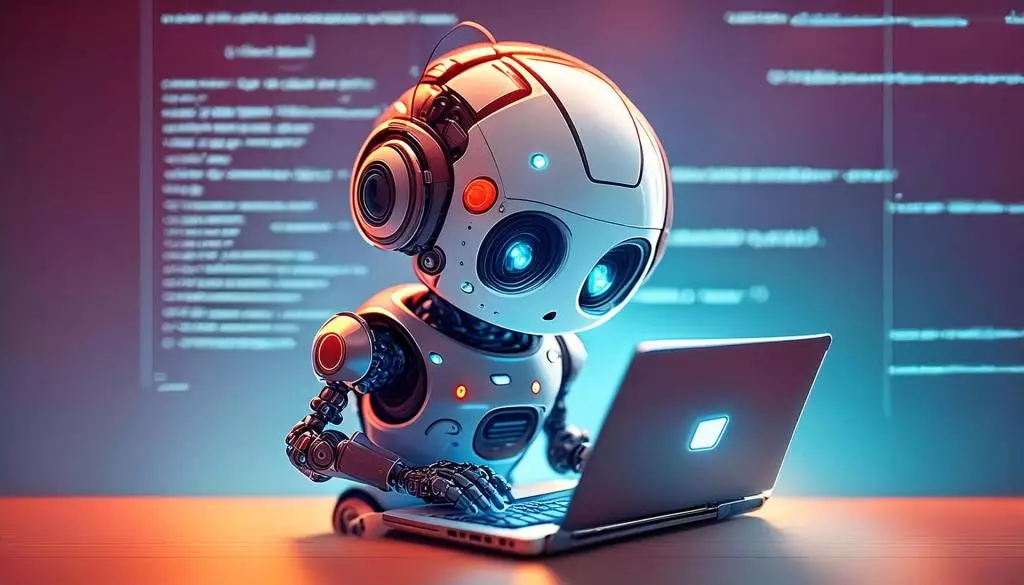The tech landscape is undergoing a seismic shift with the introduction of AI-powered coding agents, fundamentally altering how software developers interact with their tools. As companies vie for supremacy in this burgeoning market, the shift toward automated, asynchronous coding platforms reflects a deeper trend toward innovative development methodologies. At the forefront of this revolution is Google’s newly announced coding agent, Jules, which has been positioned to disrupt the status quo by simplifying and streamlining coding practices.
A New Dawn in Coding Efficiency
In December, Google initiated a daring experiment by releasing Jules — an autonomous coding agent capable of rectifying bugs in an asynchronous manner. This powerful tool allows developers to delegate mundane tasks, freeing them to tackle more complex challenges. During a recent unveiling at Google I/O, the tech giant’s vice president, Josh Woodward, emphasized the potential of Jules, stating that it would “be available to help developers fix bugs, create tests, consult documentation—all happening in the background.” This capability elevates the role of developers, empowering them to focus on creating rather than merely troubleshooting.
The asynchronous feature embedded in Jules signifies a fundamental departure from traditional coding practices. Allowing developers to input tasks while simultaneously working on other projects enhances productivity, instilling an agile mindset in coding environments and reshaping our expectations of what development can achieve.
Competitive Landscape and Emerging Contenders
Jules is not the sole contender in this evolving arena. OpenAI’s Codex, another example of a coding agent that emerged recently, began as a coding model before morphing into a more versatile autonomous developer. Codex has earned a reputation for being central to innovations like GitHub Copilot—an AI that assists with code completion autonomously. Furthermore, GitHub’s announcement of its own Copilot Agent signifies that competition is heating up, creating an ecosystem where continuous improvement is not just encouraged but essential.
As these AI agents proliferate, the excitement on social media reflects a burgeoning interest in this dynamic arms race. Each development leads to a growing discourse among developers, enthusiasts, and enterprises alike regarding which tool will ultimately prevail. The fact that industry giants are investing heavily in this space underscores the urgency and the transformative potential of AI-centric coding.
The Emergence of ‘Vibe Coding’
One intriguing trend accompanying these advancements is the concept of “vibe coding.” This approach emphasizes generating code through AI prompts instead of traditional hard coding. It is reminiscent of the low-code and no-code movements that democratize software development by enabling non-technical users to engage in building applications. As a result, the implications of vibe coding extend beyond merely enhancing developer capabilities; they suggest a profound rethinking of who gets to create software.
Much of the excitement is rooted in the belief that coding should be accessible to everyone, especially those who have historically found themselves on the periphery of technology. Google’s various offerings—like Code Assist, AI Studio, and Firebase—illustrate a concerted effort to create empowering ecosystems where innovation is the standard. Firebase, specifically, has proven instrumental in providing a platform where novice developers can dip their toes into the expansive waters of application development.
Future Directions and Opportunities
The prospect of AI coding agents entering mainstream usage raises significant questions about the future of software development. As Google, OpenAI, and other major players forge ahead with sophisticated technologies, the landscape of coding will undoubtedly evolve—potentially even reshaping job roles within tech companies. Developers may transition from purely coding responsibilities to roles that focus on oversight, strategy, and AI management.
The implications for industries beyond technology are equally compelling. With tools that empower rapid development and iteration, sectors like healthcare, education, and finance stand to benefit significantly. They can unlock a new wave of solutions, fostering innovation while shortening development cycles.
As Jules and its counterparts gain traction, the tech community finds itself on the precipice of a thrilling chapter in coding history, characterized not only by efficiency but by democratization and expanded accessibility. In another sense, it’s a thrilling reminder that technology’s true potential lies not just in code itself, but in the transformative power of collaboration between humans and machines.
Through collaborative coding with AI, we are not just engineers of software but architects of a future structured around technological harmony and innovation.

